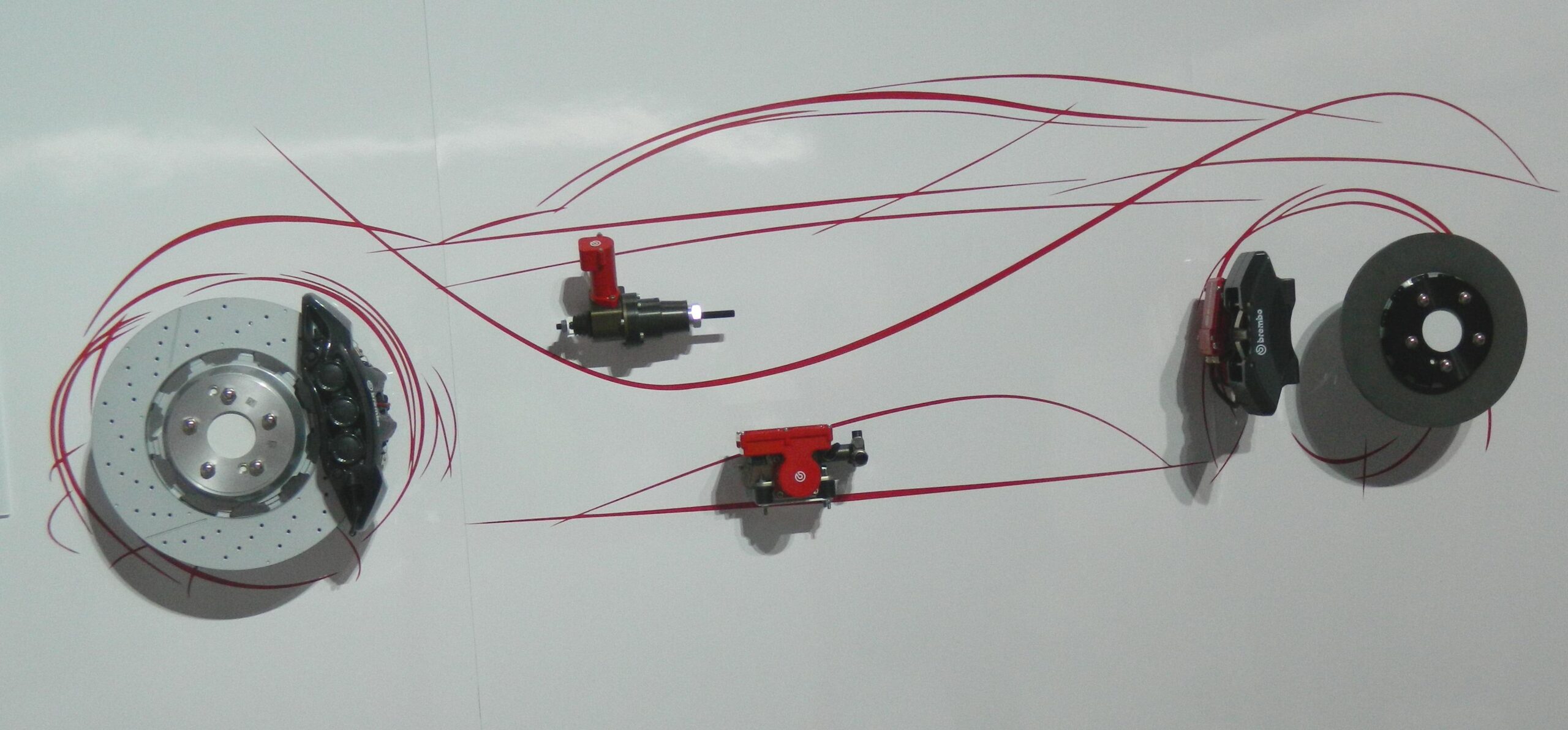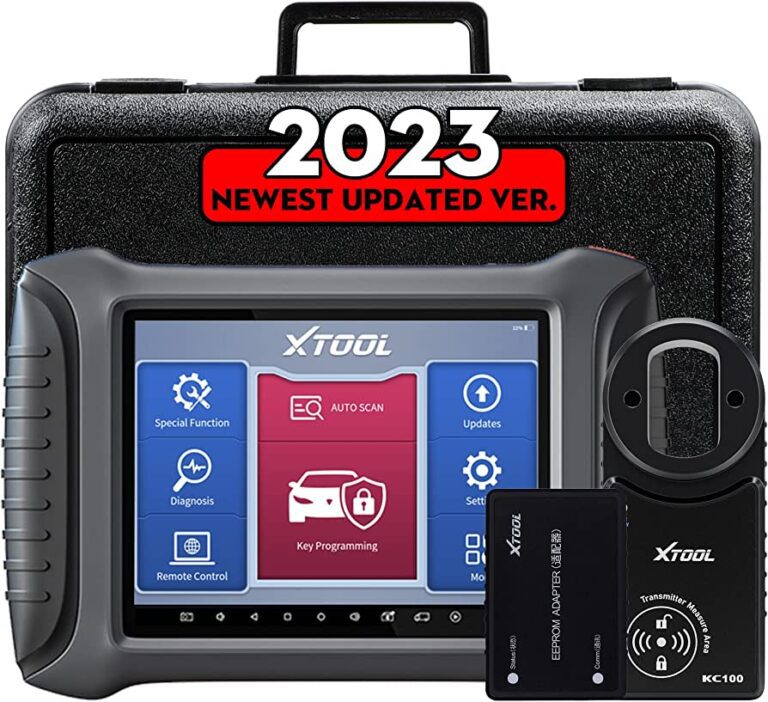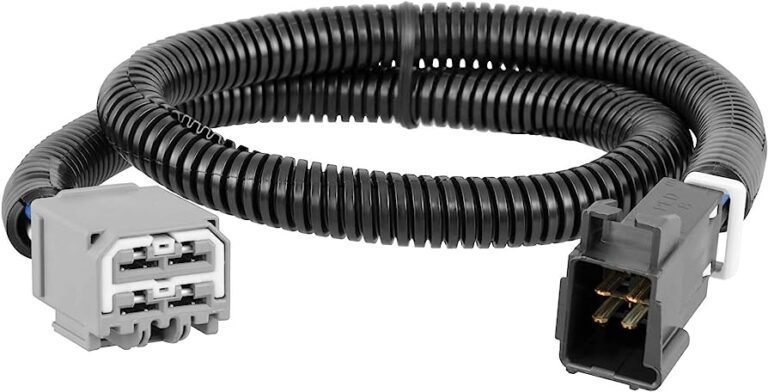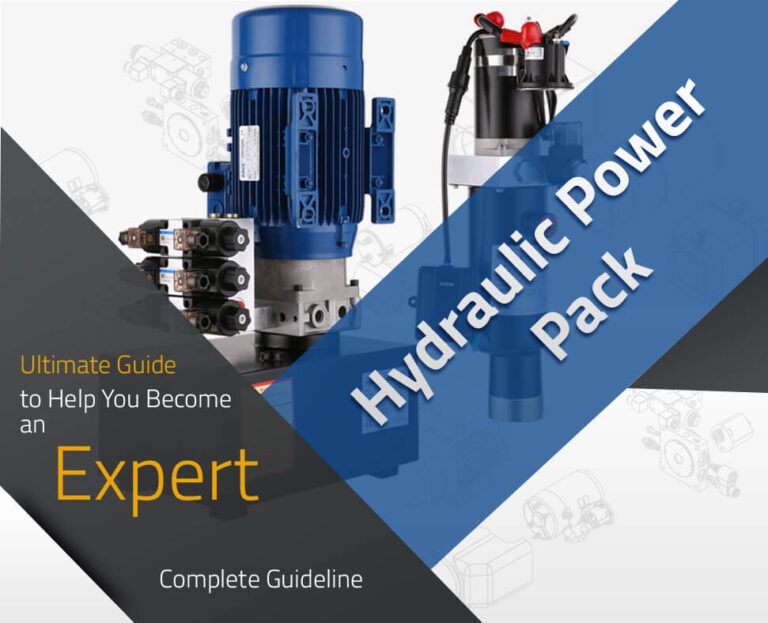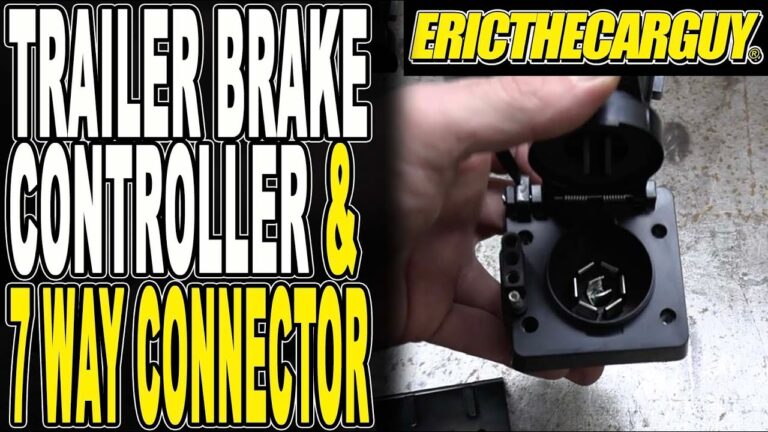Mastering Troubleshooting: Trailer Brake Controller Wiring Issues Demystified
Troubleshooting wiring issues on a trailer brake controller involves identifying and addressing any faulty connections or damaged wires. In order to rectify the problem, it is important to thoroughly inspect the wiring for any signs of wear or loose connections.
Additionally, checking the brake controller’s manual and properly testing the electrical connections can help pinpoint the exact issue and ensure the brake controller is functioning correctly. Safety should always be prioritized when troubleshooting wiring issues, and seeking professional assistance may be necessary for more complex problems.

Credit: www.newyorker.com
Understanding The Basics Of Trailer Brake Controller Wiring
If you own a trailer with electric brakes, having a properly functioning brake controller is essential for safe towing. The wiring of a trailer brake controller is an important aspect to consider when troubleshooting any issues that arise. In this section, we will delve into the various types of trailer brake controllers, the importance of proper wiring, the components involved in a trailer brake controller system, and common wiring issues along with troubleshooting techniques.
Different Types Of Trailer Brake Controllers:
- Time-delayed brake controllers: These controllers apply a preset amount of braking power after a certain amount of time once the brake pedal is pressed. They are usually cheaper and more common for light-duty trailers.
- Proportional brake controllers: These controllers provide smoother and more precise braking by applying the trailer brakes proportionally to the towing vehicle’s braking force. They offer better control and are suitable for heavier trailers or towing in challenging conditions.
Importance Of Proper Wiring For Trailer Brake Controllers:
- Ensures brake system efficiency: Proper wiring enables the brake controller to communicate effectively with the trailer’s braking system, allowing for accurate and timely brake application.
- Promotes trailer stability: When the trailer brakes are synchronized with the towing vehicle’s brakes, it helps maintain stability during braking, reducing the risk of swaying or skidding.
- Enhances safety: Well-wired brake controllers ensure reliable and consistent braking, increasing overall safety while towing.
Components Of A Trailer Brake Controller System:
- Brake controller unit: This is the electronic device that sends signals to the trailer brakes, controlling their application.
- Wiring harness: This connects the brake controller to the towing vehicle’s electrical system, transmitting the necessary power and signals.
- Trailer connector: It links the trailer’s braking system to the brake controller, allowing for communication and activation of the trailer brakes.
- Trailer brakes: These are the actual braking mechanisms present on the trailer’s wheels, activated by the brake controller’s signals.
Common Wiring Issues And Troubleshooting Techniques:
- Loose or damaged connections: Ensure all connections are secure and free from corrosion or damage. Repair or replace any faulty connections.
- Faulty wiring harness: Check for any signs of wear or damage on the wiring harness. If necessary, replace the harness to ensure proper electrical transmission.
- Incorrect wiring installation: Review the installation guide for your specific brake controller and ensure the wiring is correctly connected according to the manufacturer’s instructions.
- Fuse or circuit breaker issues: Verify that the fuses or circuit breakers related to the brake controller are in good condition and functioning properly.
- Inadequate power supply: Check if the towing vehicle’s electrical system is providing sufficient power to the brake controller. Test and replace any weak or faulty power sources.
By understanding the basics of trailer brake controller wiring, you can troubleshoot common issues more effectively and ensure the safe operation of your trailer’s braking system. Remember to consult specific wiring diagrams and follow the manufacturer’s guidelines for your particular brake controller model and trailer setup.
Step-By-Step Guide To Troubleshooting Trailer Brake Controller Wiring Issues
Precautions And Safety Measures Before Starting Troubleshooting
Before you begin troubleshooting the wiring issues of your trailer brake controller, it is important to take certain precautions and ensure your safety. Follow these steps to protect yourself and prevent any accidents:
- Make sure the trailer and tow vehicle are parked on level ground and the parking brakes are engaged.
- Disconnect the tow vehicle from the trailer before starting any troubleshooting to avoid any potential electrical hazards.
- Get a reliable electrical tester or multimeter to measure voltage and check for faulty connections.
- Wear appropriate protective gear such as gloves and safety glasses to protect yourself from any potential electrical shocks or injuries.
- Familiarize yourself with the user manual and wiring diagram of your trailer brake controller to understand the components and connections involved.
Checking The Power Source And Electrical Connections
The first step in troubleshooting trailer brake controller wiring issues is to check the power source and electrical connections. This will help identify any loose or faulty connections that might be causing the problem. Follow these steps:
- Inspect the fuse box of your tow vehicle and trailer to ensure all fuses related to the trailer brake controller are intact.
- Verify the power supply by testing the voltage at the tow vehicle’s brake controller wiring harness. Check for any voltage drop or fluctuations.
- Examine the electrical connections between the tow vehicle and trailer. Look for loose or corroded terminals, damaged wires, or poor connections.
- Use the electrical tester to check the voltage at different points along the wiring harness. Ensure that there is proper voltage supply from the power source to the brake controller.
Testing The Brake Controller Output Signal
Once you have confirmed the power source and electrical connections are functioning correctly, the next step is to test the brake controller’s output signal. Follow these steps to ensure the brake controller is sending the appropriate signal to the trailer brakes:
- Connect the tow vehicle to the trailer and engage the manual override on the brake controller (if applicable).
- Set the brake controller to a specific gain level, and then activate the brake pedal of the tow vehicle. Check if the trailer brakes respond and stop the trailer smoothly.
- Use a brake controller tester or multimeter to measure the output voltage of the brake controller. Compare the measured value with the manufacturer’s specifications to ensure it falls within the acceptable range.
- Test the brake controller under different gain settings to ensure it is adjusting the braking force accordingly.
Inspecting And Repairing Damaged Wiring
If the brake controller output signal is not working properly, the next step is to inspect and repair any damaged wiring. Follow these steps to identify and fix any issues with the wiring:
- Thoroughly inspect the entire length of the wiring harness for any visible damage such as cuts, abrasions, or exposed wires. Pay close attention to areas where the wiring is susceptible to wear and tear.
- Repair or replace any damaged wiring using appropriate connectors, soldering, or heat shrink tubing. Ensure all connections are secure and protected.
- Check for any pinched or crushed wires, especially at connection points or near sharp edges. Straighten or reroute the wiring to prevent any further damage.
- Clean any corroded terminals or connectors using electrical contact cleaner or a fine-grit sandpaper. Ensure proper contact is established between the wiring components.
Replacing Faulty Brake Controller Components
If all the previous steps fail to resolve the wiring issues with your trailer brake controller, it might be necessary to replace certain components. Follow these steps to replace faulty brake controller components:
- Refer to the user manual or contact the manufacturer for instructions on replacing specific components of the brake controller.
- Disconnect the power source from the brake controller and remove any mounting screws or brackets holding it in place.
- Install the new brake controller components following the manufacturer’s instructions. Ensure all connections are properly secured.
- Test the new brake controller to ensure it is functioning correctly and providing the appropriate output signal to the trailer brakes.
By following this step-by-step guide, you can effectively troubleshoot wiring issues with your trailer brake controller and ensure safe towing experiences. Remember to always prioritize safety and consult professionals if you encounter any difficulties during the troubleshooting process.
Common Trailer Brake Controller Wiring Problems And Solutions
Loose Or Damaged Wires And Connectors
Loose or damaged wires and connectors can cause various issues with your trailer brake controller. Here are the key points to keep in mind:
- Identifying loose or damaged wires: Inspect the wiring connections to ensure they are securely attached. Look for any frayed or exposed wires that may indicate damage.
- Repairing or replacing wires and connectors: If you find loose or damaged wires, it’s crucial to repair or replace them. Cut out the damaged portion and use connectors or soldering to reattach or replace the wires.
Corrosion And Rust On Wiring And Connectors
Corrosion and rust can hinder proper electrical connections in trailer brake controllers. Consider the following points to address this problem:
- Cleaning corroded connectors: Use a wire brush or emery cloth to remove corrosion and rust from the connectors. Ensure that the connectors are completely dry before reattaching them.
- Preventing corrosion in the future: Apply dielectric grease or use corrosion-resistant connectors to prevent future corrosion. Regularly inspect and clean the connectors to maintain optimal functionality.
Inconsistent Or No Braking Response
When your trailer brake controller doesn’t provide a consistent or any braking response, it can be frustrating. The following suggestions can help troubleshoot this issue:
- Troubleshooting brake switch and signal issues: Check the brake switch and signals to ensure they are working correctly. Replace faulty components if necessary.
- Adjusting brake controller settings for proper response: Refer to the manufacturer’s instructions to adjust the brake controller settings according to your trailer’s weight and braking requirements.
Faulty Brake Controller Or Wiring Harness
A faulty brake controller or wiring harness can cause multiple problems with trailer brake performance. Consider these key points when dealing with this issue:
- Recognizing symptoms of a faulty brake controller: Look out for signs like erratic braking, no response, or warning lights indicating a malfunctioning brake controller. This helps identify potential issues.
- Replacing a defective brake controller or wiring harness: If you suspect a faulty brake controller or wiring harness, it’s essential to replace them with compatible and reliable replacements. Ensure the new components are installed correctly for optimal performance.
Remember, troubleshooting wiring issues with your trailer brake controller requires careful inspection, identification of problems, and appropriate solutions. By addressing loose or damaged wires, dealing with corrosion and rust, and addressing inconsistent braking responses or faulty components, you can ensure a safer and smoother towing experience.
Advanced Techniques For Troubleshooting Difficult Trailer Brake Controller Wiring Issues
Wiring issues with a trailer brake controller can be frustrating and challenging to troubleshoot. Fortunately, there are advanced techniques that can help you identify and resolve these problems. In this section, we will discuss some of the most effective methods for troubleshooting difficult trailer brake controller wiring issues.
Using A Multimeter To Test Electrical Continuity
- A multimeter is a vital tool for troubleshooting wiring issues with a trailer brake controller.
- By using a multimeter, you can test the electrical continuity and identify any faulty connections or broken wires.
- Here are the key steps involved in using a multimeter to test electrical continuity:
- Start by disconnecting the trailer brake controller from the vehicle’s electrical system.
- Set the multimeter to the continuity mode.
- Check the wiring connections at the brake controller and ensure they are secure.
- Test the continuity of each wire by placing one lead of the multimeter on the wire’s end and the other lead on the corresponding connection point.
- If the multimeter indicates continuity, it means the connection is intact. If there is no continuity, it indicates a wiring issue that needs to be addressed.
Understanding The Breakaway System And Wiring
- The breakaway system is a crucial safety feature that activates the trailer’s brakes in case it becomes disconnected from the tow vehicle.
- Understanding the breakaway system and its wiring is essential for troubleshooting trailer brake controller issues.
- Here are the key points to know about the breakaway system and wiring:
- The breakaway system consists of a breakaway switch, a battery, and the wiring that connects them to the trailer brakes.
- Verify that the wiring connections to the breakaway switch and battery are secure and free from any corrosion.
- Use a multimeter to test the voltage at the breakaway switch and battery, ensuring they are providing sufficient power to activate the trailer brakes.
Analyzing Diagnostic Error Codes And Troubleshooting Solutions
- Trailer brake controllers often come equipped with diagnostic features that provide error codes to help troubleshoot wiring issues.
- Analyzing these diagnostic error codes can provide valuable insights into the problem and help find appropriate solutions.
- Here’s how to analyze diagnostic error codes and troubleshoot wiring issues effectively:
- Refer to the manufacturer’s manual or website to understand the specific error codes and their meanings.
- Follow the recommended troubleshooting steps provided by the manufacturer for each error code.
- Inspect the wiring connections related to the error code, looking for any loose or damaged wires.
- Repair or replace any faulty wiring components as indicated by the error code and manufacturer’s instructions.
Seeking Professional Help And Expert Advice
- If you have exhausted all troubleshooting techniques and still can’t resolve the trailer brake controller wiring issues, it may be time to seek professional help.
- Consulting with an expert or a qualified technician can provide valuable insights and assistance in resolving complex wiring problems.
- Here are the key points to consider when seeking professional help and expert advice:
- Look for professional trailer brake controller installation and repair services in your area.
- Seek recommendations from trusted sources or online forums for reputable professionals with expertise in trailer brake wiring.
- Explain the specific issues you are experiencing and provide any relevant diagnostic error codes for a more accurate assessment.
- Follow the guidance and recommendations of the professionals to resolve the wiring issues effectively.
Remember, troubleshooting difficult trailer brake controller wiring issues requires patience and a systematic approach. By utilizing advanced techniques like using a multimeter, understanding the breakaway system and wiring, analyzing diagnostic error codes, and seeking professional help when needed, you can overcome these challenges and ensure the proper functioning of your trailer’s brakes.
Best Practices For Maintaining And Preventing Trailer Brake Controller Wiring Issues
Regular inspection and maintenance of wiring and connections:
- Conduct regular visual inspections of the trailer brake controller wiring and connections to identify any signs of wear, damage, or loose connections.
- Check for any frayed or exposed wires that may be susceptible to damage or electrical shorts.
- Clean the connections regularly to remove any dirt, debris, or corrosion that may hinder proper electrical flow.
- Ensure that all wires are properly secured and not hanging loosely, which can increase the risk of damage.
Properly securing and protecting wires and connectors:
- Use zip ties or clips to secure the wiring along the trailer frame or undercarriage to prevent it from dangling or getting caught on objects.
- Avoid running the wiring through areas where it may be subject to excessive heat, sharp edges, or moving parts that could cause damage.
- Use wire looms, protective sleeves, or conduit to provide extra protection for the wires against abrasion, moisture, and environmental hazards.
- Keep the wires away from areas of high foot traffic or potential sources of impact to minimize the risk of accidental damage.
Avoiding excessive moisture exposure and damage:
- Ensure that all connections, splices, and junction boxes are properly sealed and protected from moisture intrusion.
- Apply dielectric grease or waterproof sealant around the connectors to create a barrier against water and prevent corrosion.
- Avoid submerging the trailer brake controller or its wiring in water, especially during the launch and recovery of boats or watercrafts.
- Consider using weatherproof or marine-grade wiring components, connectors, and conduit for added protection against moisture and corrosion.
Importance of professional installation and regular servicing:
- Hire a professional or experienced technician to install the trailer brake controller and its wiring system to ensure proper installation and avoid potential mistakes or issues.
- Regularly schedule maintenance and servicing of the trailer brake controller wiring to identify and address any underlying problems before they worsen.
- Follow the manufacturer’s guidelines for recommended servicing intervals and procedures to maintain optimal performance and safety.
- Professional installation and regular servicing help ensure that the trailer brake controller wiring functions correctly and reduces the risk of accidents or malfunctions.
Remember, regular inspection, proper securing and protection of wires and connectors, avoiding excessive moisture exposure, and professional installation and regular servicing are crucial for maintaining and preventing trailer brake controller wiring issues. Stay proactive and follow these best practices to ensure the safety and efficiency of your trailer’s braking system.
Frequently Asked Questions On Troubleshooting Wiring Issues Of Trailer Brake Controller
How Can I Troubleshoot Wiring Issues Of My Trailer Brake Controller?
To troubleshoot wiring issues of your trailer brake controller, start by checking the connections for loose or damaged wires.
What Are The Common Signs Of Wiring Issues In A Trailer Brake Controller?
Common signs of wiring issues in a trailer brake controller include brake lights not working, erratic trailer braking, or no power to the controller.
How Do I Check If The Wires Are Properly Connected To The Trailer Brake Controller?
To check if the wires are properly connected to the trailer brake controller, inspect the connections for any loose or disconnected wires.
Why Is My Trailer Brake Controller Not Receiving Power?
Your trailer brake controller may not be receiving power due to a blown fuse, a faulty wiring connection, or a problem with the vehicle’s electrical system.
How Can I Fix A Loose Wire Connection In My Trailer Brake Controller?
To fix a loose wire connection in your trailer brake controller, carefully reattach the wire to its corresponding terminal or use electrical tape for a more secure connection.
What Should I Do If My Trailer Brake Controller Is Not Working Properly?
If your trailer brake controller is not working properly, check the wiring connections, inspect for any damage, and consider consulting a professional for further assistance.
Can I Fix Wiring Issues In My Trailer Brake Controller Myself?
Yes, you can fix wiring issues in your trailer brake controller yourself, as long as you have some basic knowledge of electrical connections and the necessary tools.
When Should I Seek Professional Help For Wiring Issues In My Trailer Brake Controller?
You should seek professional help for wiring issues in your trailer brake controller if you are unsure of how to diagnose or fix the problem, or if the issue persists after your own attempts to troubleshoot.
How Can I Prevent Future Wiring Issues In My Trailer Brake Controller?
To prevent future wiring issues in your trailer brake controller, regularly inspect the connections for damage or wear, and ensure all wires are securely connected and protected from the elements.
Is It Necessary To Consult A Professional For Wiring Issues In My Trailer Brake Controller?
Consulting a professional for wiring issues in your trailer brake controller is not always necessary, but it can be helpful if you are unfamiliar with electrical systems or if the problem persists despite your own troubleshooting efforts.
Conclusion
Troubleshooting wiring issues of a trailer brake controller can be a daunting task, but with the right approach and knowledge, it is definitely manageable. Start by checking the basics, such as the connection points and the condition of the wiring.
Look for any signs of damage or wear that could be causing the problem. If necessary, consult the manufacturer’s manual for specific guidelines on troubleshooting. Additionally, consider reaching out to a professional if you’re unsure about your troubleshooting skills. Remember to always prioritize safety when working with electrical components and be patient throughout the process.
By following these steps and putting in the necessary effort, you can successfully troubleshoot wiring issues of your trailer brake controller and ensure smooth and safe towing experiences.

